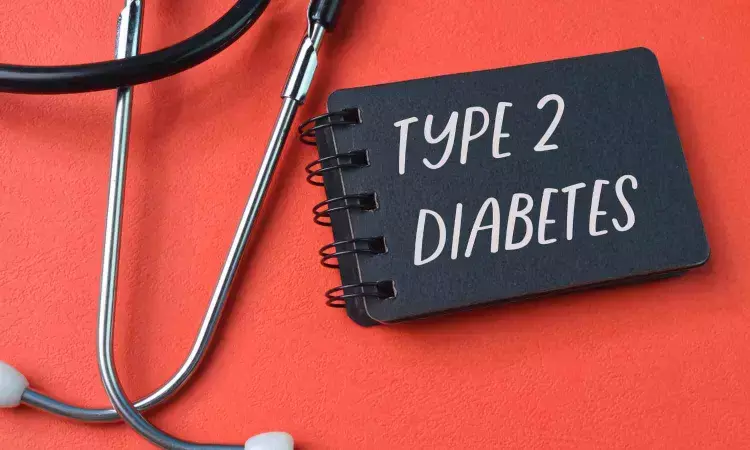- Home
- Medical news & Guidelines
- Anesthesiology
- Cardiology and CTVS
- Critical Care
- Dentistry
- Dermatology
- Diabetes and Endocrinology
- ENT
- Gastroenterology
- Medicine
- Nephrology
- Neurology
- Obstretics-Gynaecology
- Oncology
- Ophthalmology
- Orthopaedics
- Pediatrics-Neonatology
- Psychiatry
- Pulmonology
- Radiology
- Surgery
- Urology
- Laboratory Medicine
- Diet
- Nursing
- Paramedical
- Physiotherapy
- Health news
- Fact Check
- Bone Health Fact Check
- Brain Health Fact Check
- Cancer Related Fact Check
- Child Care Fact Check
- Dental and oral health fact check
- Diabetes and metabolic health fact check
- Diet and Nutrition Fact Check
- Eye and ENT Care Fact Check
- Fitness fact check
- Gut health fact check
- Heart health fact check
- Kidney health fact check
- Medical education fact check
- Men's health fact check
- Respiratory fact check
- Skin and hair care fact check
- Vaccine and Immunization fact check
- Women's health fact check
- AYUSH
- State News
- Andaman and Nicobar Islands
- Andhra Pradesh
- Arunachal Pradesh
- Assam
- Bihar
- Chandigarh
- Chattisgarh
- Dadra and Nagar Haveli
- Daman and Diu
- Delhi
- Goa
- Gujarat
- Haryana
- Himachal Pradesh
- Jammu & Kashmir
- Jharkhand
- Karnataka
- Kerala
- Ladakh
- Lakshadweep
- Madhya Pradesh
- Maharashtra
- Manipur
- Meghalaya
- Mizoram
- Nagaland
- Odisha
- Puducherry
- Punjab
- Rajasthan
- Sikkim
- Tamil Nadu
- Telangana
- Tripura
- Uttar Pradesh
- Uttrakhand
- West Bengal
- Medical Education
- Industry
Early prenatal exposure to famine increases Type 2 diabetes risk in adulthood, shows study

Prenatal exposure to famine significantly increases the risk of developing Type 2 diabetes mellitus (T2DM) in adulthood, according to a new study of people impacted by the 1932-1933 Holodomor famine in Ukraine.
While the immediate and short-term effects of famines on mortality and morbidity are well-documented, deciphering famines’ long-term health consequences-as this study did-has been more difficult. Previous research has suggested a link between prenatal nutrition and adult health outcomes, including metabolic disorders like diabetes. However, these studies were limited by small sample sizes and uncertainties of famine exposure.
The Holodomor famine in Ukraine, which was caused by Soviet policies and resulted in the deaths of millions through extreme food scarcity, presents a unique opportunity to examine this link due to its extreme severity, well-defined time frame, large population size, and extensive documentation. Here, L. H. Lumey and colleagues studied individuals born during this period, investigating how severe nutritional deprivation in early gestation impacts health decades later. Lumey et al. conducted an ecological study using data from 128,225 type-2 diabetes mellitus (T2DM) cases diagnosed between 2000 and 2008 among more than 10 million individuals born in Ukraine between 1930 and 1938.
They found that individuals born in early 1934, who were in early gestation during the peak famine period in mid-1933, had a more than two-fold increased likelihood of developing T2DM in adulthood compared to those unexposed to the famine. Notably, no T2DM increase was seen among infants exposed to famine in mid or late gestation or in the first years of life. The findings identified a critical time window for when severe prenatal malnutrition has the greatest impact on future health, highlighting the importance of early gestational nutrition. In a Perspective, Peter Klimek and Stefan Thurner discuss the study and the implications of its findings on understanding and preventing global health threats related to food scarcity.
Reference:
L. H. Lumey et al. ,Fetal exposure to the Ukraine famine of 1932–1933 and adult type 2 diabetes mellitus.Science385,667-671(2024).DOI:10.1126/science.adn4614.
Dr Kamal Kant Kohli-MBBS, DTCD- a chest specialist with more than 30 years of practice and a flair for writing clinical articles, Dr Kamal Kant Kohli joined Medical Dialogues as a Chief Editor of Medical News. Besides writing articles, as an editor, he proofreads and verifies all the medical content published on Medical Dialogues including those coming from journals, studies,medical conferences,guidelines etc. Email: drkohli@medicaldialogues.in. Contact no. 011-43720751


